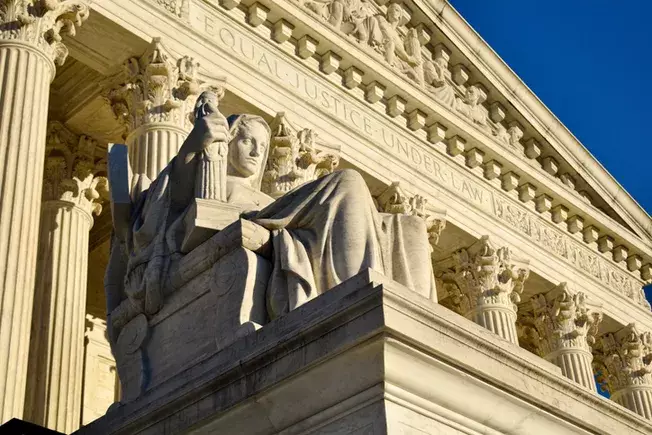The fate of TikTok in the United States hangs in a precarious balance as a looming deadline approaches. With a significant user base of 170 million Americans, the popular social media app is now under severe scrutiny due to national security concerns. The recent “Protecting Americans from Foreign Adversary Controlled Applications Act” stipulates that TikTok will face a ban on January 19 should it fail to secure a sale to U.S. interests. This legislation has raised questions about the app’s ties to the Chinese government, potential data privacy violations, and its capacity for disseminating disinformation.
As the legal framework surrounding TikTok continues to evolve, the app’s leadership has mounted a substantial defense against impending restrictions. Following the denial of TikTok’s initial appeal by the U.S. Court of Appeals for the District of Columbia Circuit, the company has taken its case to the Supreme Court. This move represents a crucial moment in its ongoing battle for survival within the U.S. market. Recent indications from the justices during oral arguments suggest a lean towards upholding the legislation, even as they wrestle with the implications under the First Amendment.
TikTok argues that the ban infringes upon free speech rights, yet the government’s emphasis on national security complicates this defense. Should the Supreme Court ultimately rule unfavorably for TikTok, the consequences would be staggering. Users would no longer receive updates or support from ByteDance, its parent company, effectively rendering the app obsolete in the United States.
Adding another layer to this complex situation is the political backdrop surrounding the impending ban. The incoming Trump administration has expressed intent to intervene on TikTok’s behalf, indicating a desire to prevent the app’s removal. Legal maneuvers are underway, including the filing of an amicus brief to request that the Supreme Court extend the deadline, allowing for further deliberation. However, the political ramifications of such action could be profound, especially given the bipartisan support for the original legislation.
While Trump’s team could potentially lobby Congress to overturn the bill, they would face considerable opposition, particularly given the bill’s broad approval spectrum. Alternatively, an executive order aimed at curtailing enforcement actions against TikTok could arise, although this tactic presents its own set of complications.
Despite a consortium of U.S. investors expressing interest in acquiring TikTok, the window for negotiations appears to be closing quickly. TikTok’s management has indicated that they view the timeline for a potential sale as too restrictive, leaving little room for viable alternatives as the deadline approaches. The lack of communication between ByteDance and prospective buyers further complicates matters, leaving many to speculate about the app’s future amidst the turbulence of international relations.
As the January 19 deadline looms, various scenarios could unfold—ranging from a last-minute deal to a complete shutdown of operations in the United States. Users and stakeholders are bracing for uncertainty, as the likelihood of an outright ban intensifies. The potential eradication of TikTok as a social media platform may very well reshape the digital landscape in the U.S., pushing users towards alternative applications while raising questions regarding data privacy and foreign influence.
The situation surrounding TikTok in the U.S. encapsulates the complexities of national security, data privacy, and free speech, bringing them to the forefront in a rapidly evolving digital age. As the Supreme Court deliberates and the clock ticks down to the ban’s implementation date, the future of this beloved app remains shrouded in uncertainty. Whether TikTok can successfully navigate this tumultuous legal landscape or will be relegated to digital history is a question that will soon be answered—but until then, it remains a digital cliffhanger for millions of American users.


Leave a Reply